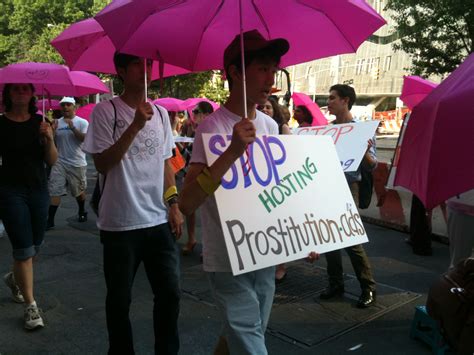1 / 20

2 / 20

3 / 20

4 / 20

5 / 20

6 / 20

7 / 20

8 / 20

9 / 20

10 / 20

11 / 20

12 / 20

13 / 20

14 / 20

15 / 20

16 / 20

17 / 20

18 / 20

19 / 20

20 / 20

❮
❯
Did Backpage Fort Wayne's Closure Really Solve the Problem? The Complex Aftermath of Sex Trafficking and Online Advertising
The shutdown of Backpage.com in 2018 sent shockwaves through the online advertising world, particularly within communities grappling with the pervasive issue of sex trafficking. Fort Wayne, Indiana, like many cities across the nation, experienced the impact of Backpage's operations firsthand, witnessing its use as a platform for soliciting prostitution and facilitating the exploitation of vulnerable individuals. While the site's closure was hailed by many as a victory against sex trafficking, the question remains: did it truly solve the problem, or simply shift it elsewhere? This article delves into the complex aftermath of Backpage's demise in Fort Wayne, examining its lasting impact, the evolving landscape of online sex trafficking, and the ongoing challenges in combating this insidious crime.
Backpage's Role in Fort Wayne's Sex Trafficking Landscape:
Before its closure, Backpage operated as a classified advertising website, ostensibly offering services for everything from garage sales to adult entertainment. However, its adult section became notorious for facilitating sex trafficking, acting as a virtual marketplace for buyers and sellers. In Fort Wayne, as in other areas, this resulted in:
- Increased visibility of sex trafficking: The ease with which individuals could advertise their services, often under the guise of escort services, made it easier for traffickers to exploit vulnerable populations. The anonymity offered by the platform shielded perpetrators from prosecution.
- Recruitment and exploitation of minors: Backpage became a breeding ground for child sex trafficking, with minors often being coerced or forced into prostitution and advertised on the site. The platform’s lack of robust verification mechanisms allowed traffickers to operate with impunity.
- Strain on law enforcement resources: Investigating and prosecuting cases related to Backpage required significant resources from Fort Wayne law enforcement, diverting attention from other crucial crime areas. Identifying victims and building cases against traffickers proved challenging due to the site’s structure and the anonymity it afforded.
The Immediate Aftermath of Backpage's Closure:
The immediate response to Backpage's shutdown was a mixture of cautious optimism and apprehension. While law enforcement celebrated the removal of a significant tool used by traffickers, concerns arose about the potential displacement of the problem to other platforms. In Fort Wayne, this manifested in several ways:
- Migration to alternative platforms: Traffickers quickly adapted, shifting their advertising to other online platforms, including social media sites, encrypted messaging apps, and smaller, less regulated classifieds websites. This created a “whack-a-mole” effect, requiring constant monitoring and adaptation from law enforcement.
- Increased use of coded language and hidden advertisements: To avoid detection, traffickers started employing more sophisticated methods, utilizing cryptic language and embedding advertisements within seemingly innocuous online content.
- Challenges in identifying and rescuing victims: The dispersed nature of the advertising made it harder to identify victims, track traffickers, and provide support services.
Long-Term Impacts and Ongoing Challenges:
The long-term impact of Backpage's closure on Fort Wayne's sex trafficking problem is still being assessed. While some argue that the closure had a positive effect by disrupting established networks and raising awareness, others point to the persistent challenges:
- The enduring demand: The closure of Backpage did not eliminate the demand for commercial sex, simply changing the supply chain. This demand continues to fuel the trafficking industry, pushing it towards increasingly sophisticated and clandestine methods.
- Limited resources for victim support: Fort Wayne, like many communities, faces a shortage of resources dedicated to supporting survivors of sex trafficking. Providing comprehensive care, including shelter, counseling, and legal assistance, remains a significant challenge.
- Need for stronger legislation and international cooperation: Combating sex trafficking requires a multi-faceted approach, including stronger legislation to hold traffickers accountable, enhanced international cooperation to dismantle transnational networks, and increased investment in prevention and intervention programs.
The Role of Technology and Online Platforms:
The internet and social media have revolutionized how sex trafficking operates, offering new avenues for recruitment, exploitation, and advertising. To effectively counter this, a comprehensive strategy is required:
- Improved platform accountability: Social media platforms and other online services must take greater responsibility for preventing their platforms from being used for sex trafficking. This includes implementing more robust content moderation policies, improving user verification processes, and collaborating with law enforcement.
- Development of advanced detection technologies: Law enforcement agencies need access to sophisticated technologies capable of identifying and tracking traffickers online, including AI-powered tools for detecting coded language and hidden advertisements.
- Public awareness campaigns: Educating the public about the signs of sex trafficking and empowering individuals to report suspicious activity is crucial in combating this crime.
Conclusion: A Continuing Fight:
The closure of Backpage.com in Fort Wayne, while a significant event, did not magically solve the problem of sex trafficking. It merely shifted the landscape, forcing traffickers to adopt new methods and technologies. Effectively combating this crime requires a long-term, multi-pronged approach involving law enforcement, technology companies, victim support organizations, and the wider community. The fight continues, and the question remains not whether the problem was solved, but rather how effectively we can continue to adapt and fight against this pervasive form of exploitation. Continued investment in technology, victim support, and public awareness remains crucial in minimizing the devastating impact of sex trafficking on vulnerable populations in Fort Wayne and beyond. Further research and analysis are needed to accurately assess the long-term effects of Backpage’s closure and to inform more effective strategies for tackling this complex issue. The challenge remains to proactively disrupt the ever-evolving strategies employed by sex traffickers, ensuring a more secure and safer online environment for all.